ΑΝΤΙΓΟΝΗ του Σοφοκλή
THE JERUSALEM KHAN THEATRE, Ισραήλ
- Saturday, July 14Curium Ancient Theatre
- Sunday, July 15Curium Ancient Theatre
- Performances start at:21:00Please arrive at the theatre before 20:45
The renowned Lithuanian director, Cezaris Graužinis, with an outstanding group of actors and artists, directs the first part of Aeschylus’ trilogy, Oresteia, Agamemnon and creates a performance about the origins and future of human violence. King Agamemnon returns to Argos, shortly after the end of the Trojan War. Agamemnon triumphantly marches into the city and his palace, flaunting the Trojan princess and Apollo priestess Cassandra as his spoils of war. Clytemnestra welcomes her husband, all pomp and circumstance. However, it is quickly revealed that her enthusiasm conceals a well-orchestrated plan. She has decided to take revenge for the murder of their daughter, Iphigenia, sacrificed by Agamemnon to get the Greek ships afloat over ten years ago. The red carpet she rolls out for Agamemnon’s return foreshadows the impending bloodbath, when she and her accomplice/lover, Aegisthus, murder the king and his concubine.
- Με αγγλικούς υπέρτιτλους
- Μετάφραση:Yorgos Blanas
- Σκηνοθεσία:Cezaris Graužinis
- Σκηνικά και Κοστούμια:Kenny MacLellan
- Μουσική:Haris Pegiazis
- Χορογράφος:Eddie Lame
- Κίνηση:Alekos Yiannaros
- Σχεδιασμός φωτισμού:Andreas Christodoulides
- Βοηθός σκηνοθέτη:Sygklitiki Vlahaki
Διανομή:
- Clytemnestra:Maria Protopappa
- Agamemnon/Aegisthus:Yannis Stankoglou
- Herald:Argyris Pantazaras
- Cassandra:Iovi Fragatou
- Watchman:Thodoris Katsafados
- Assistant to the director:George Demopoulos
Χορός
Markos Gettos,
Dimitris Georgiadis,
Tasos Theofilatos,
Panagos Ioakim,
Dimitris Karaviotis,
Ilias Menagier,
Dimitris Miliotis,
Alexandros Moukanos,
Alexandros Balamotis,
Vasilis Papageorgiou,
Klearchos Papageorgiou,
Giorgos Papandreou
Dimitris Georgiadis,
Tasos Theofilatos,
Panagos Ioakim,
Dimitris Karaviotis,
Ilias Menagier,
Dimitris Miliotis,
Alexandros Moukanos,
Alexandros Balamotis,
Vasilis Papageorgiou,
Klearchos Papageorgiou,
Giorgos Papandreou
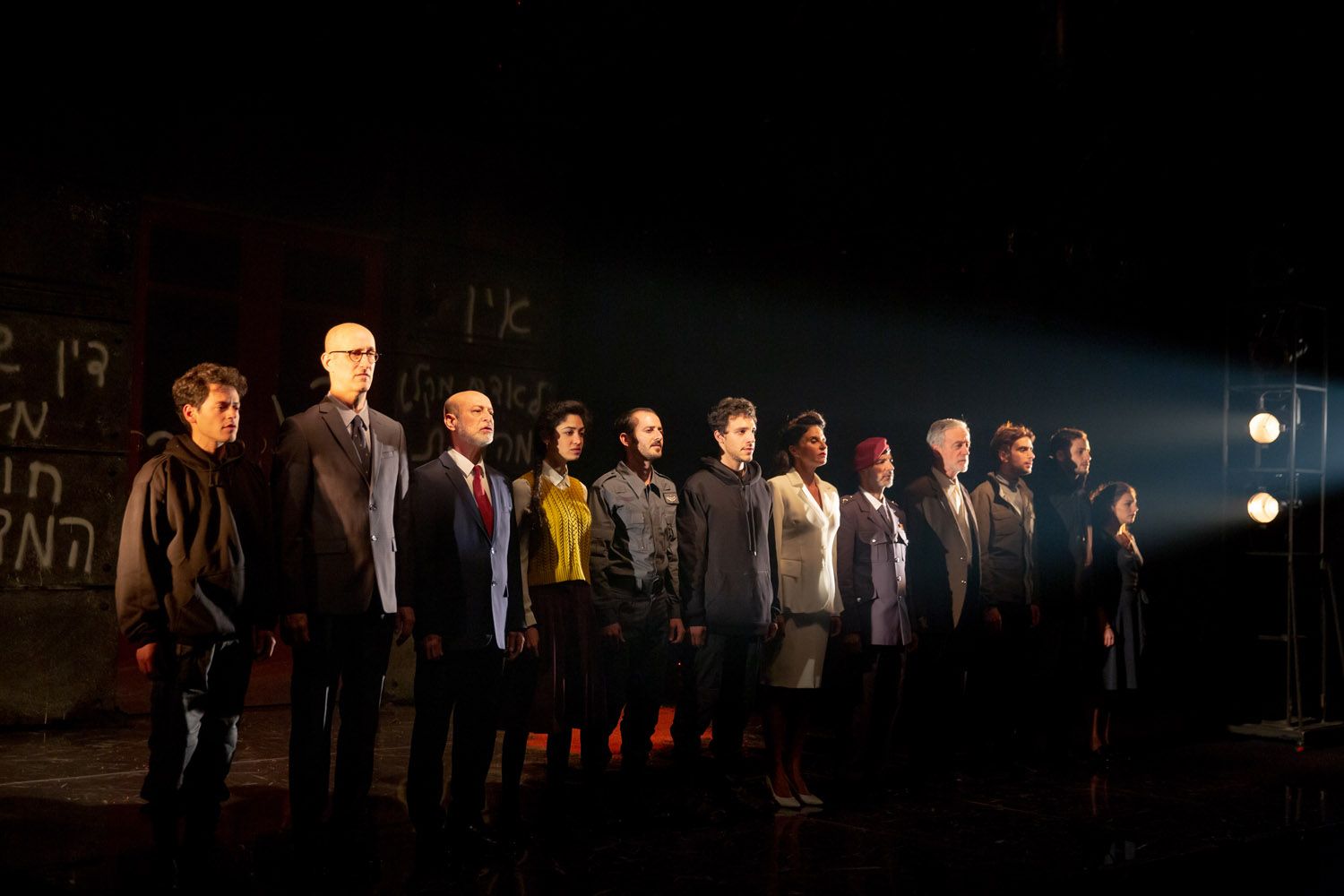
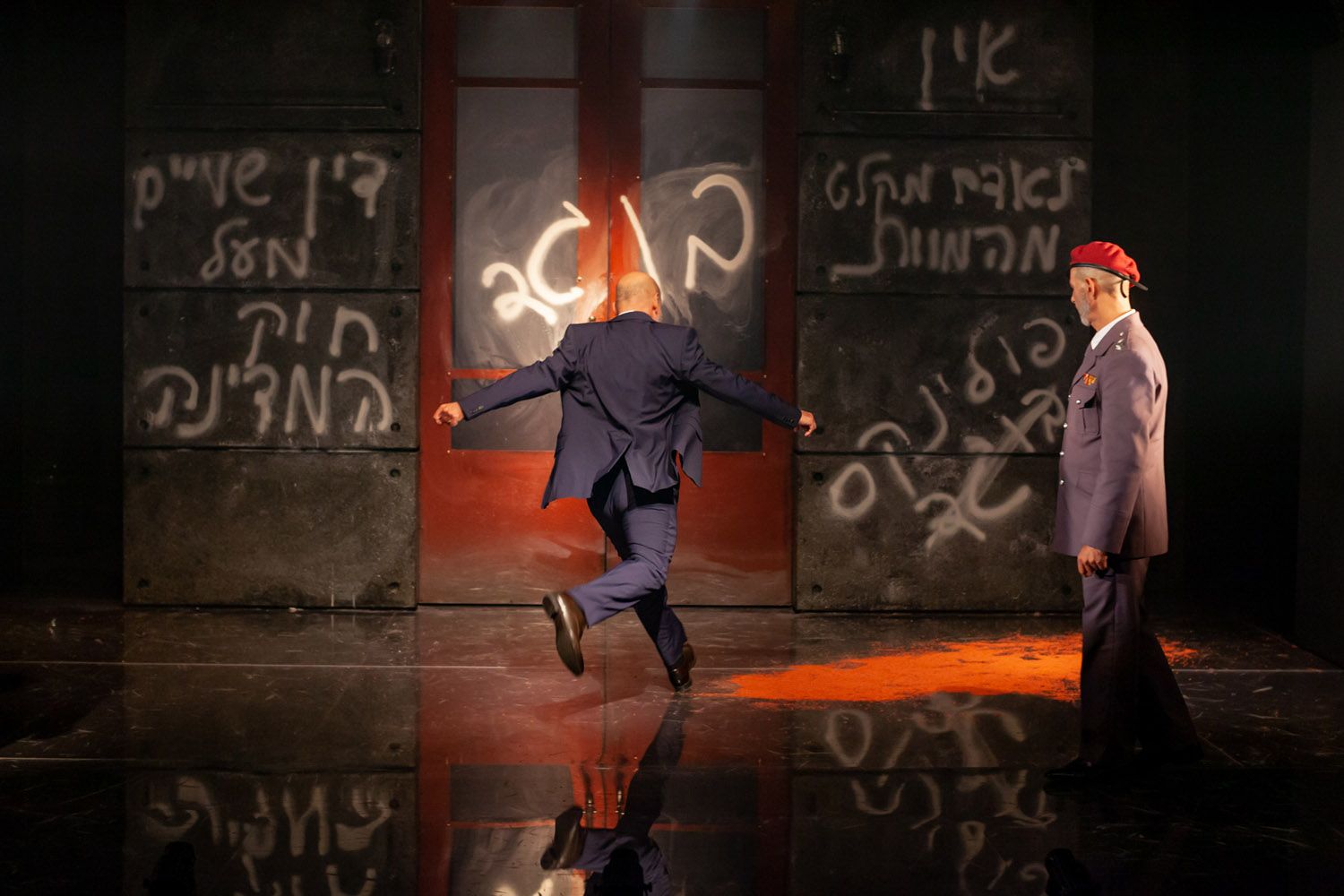
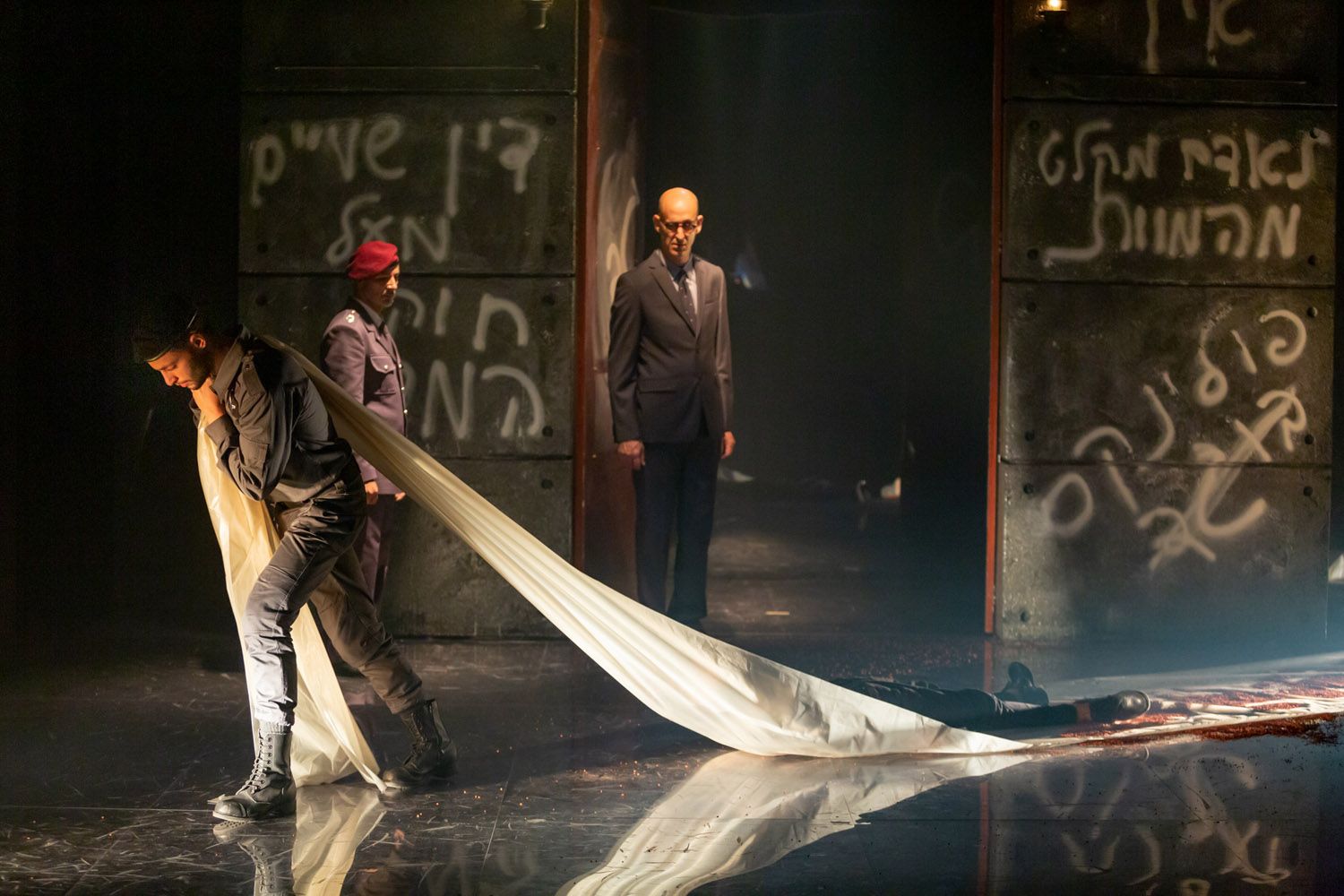
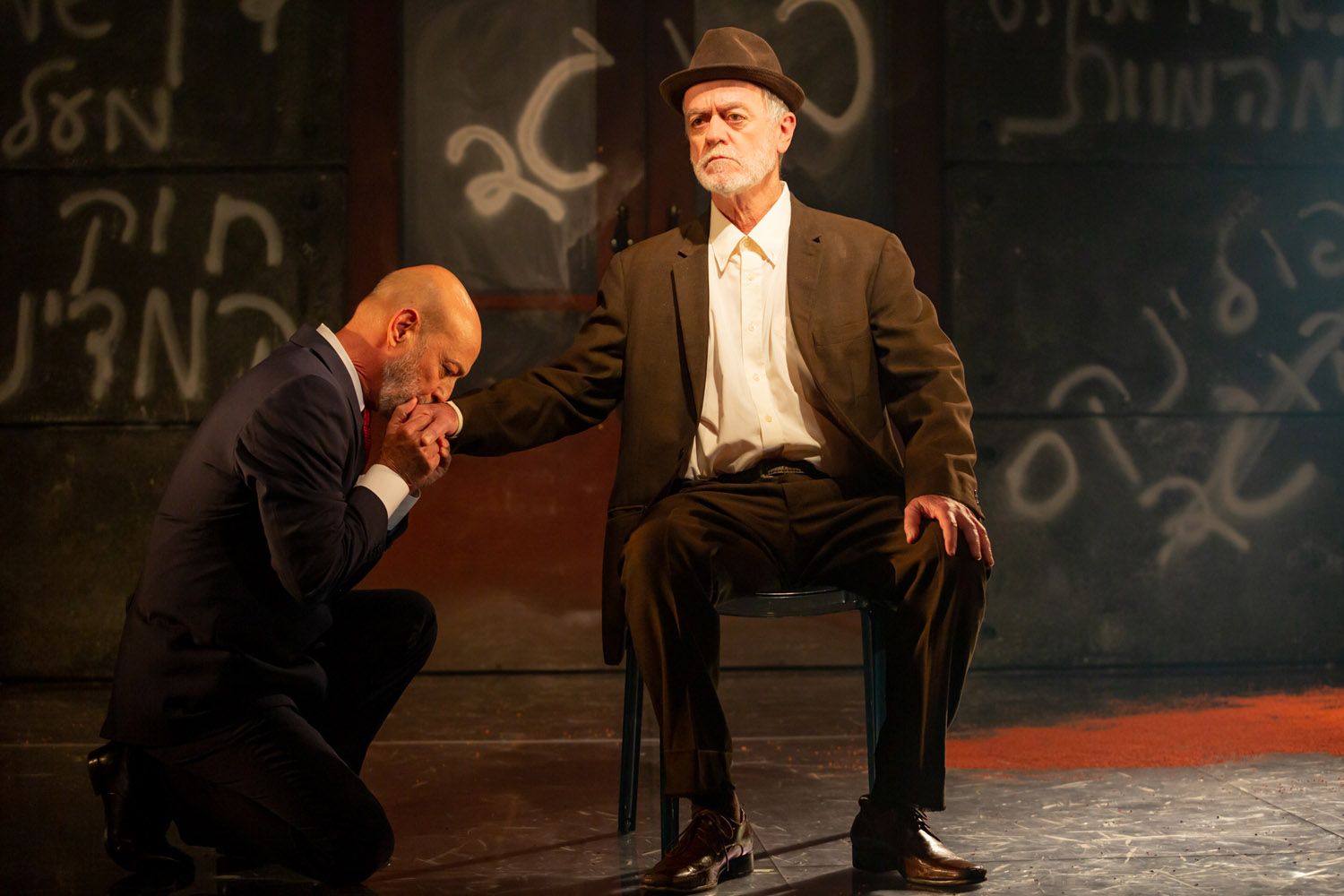
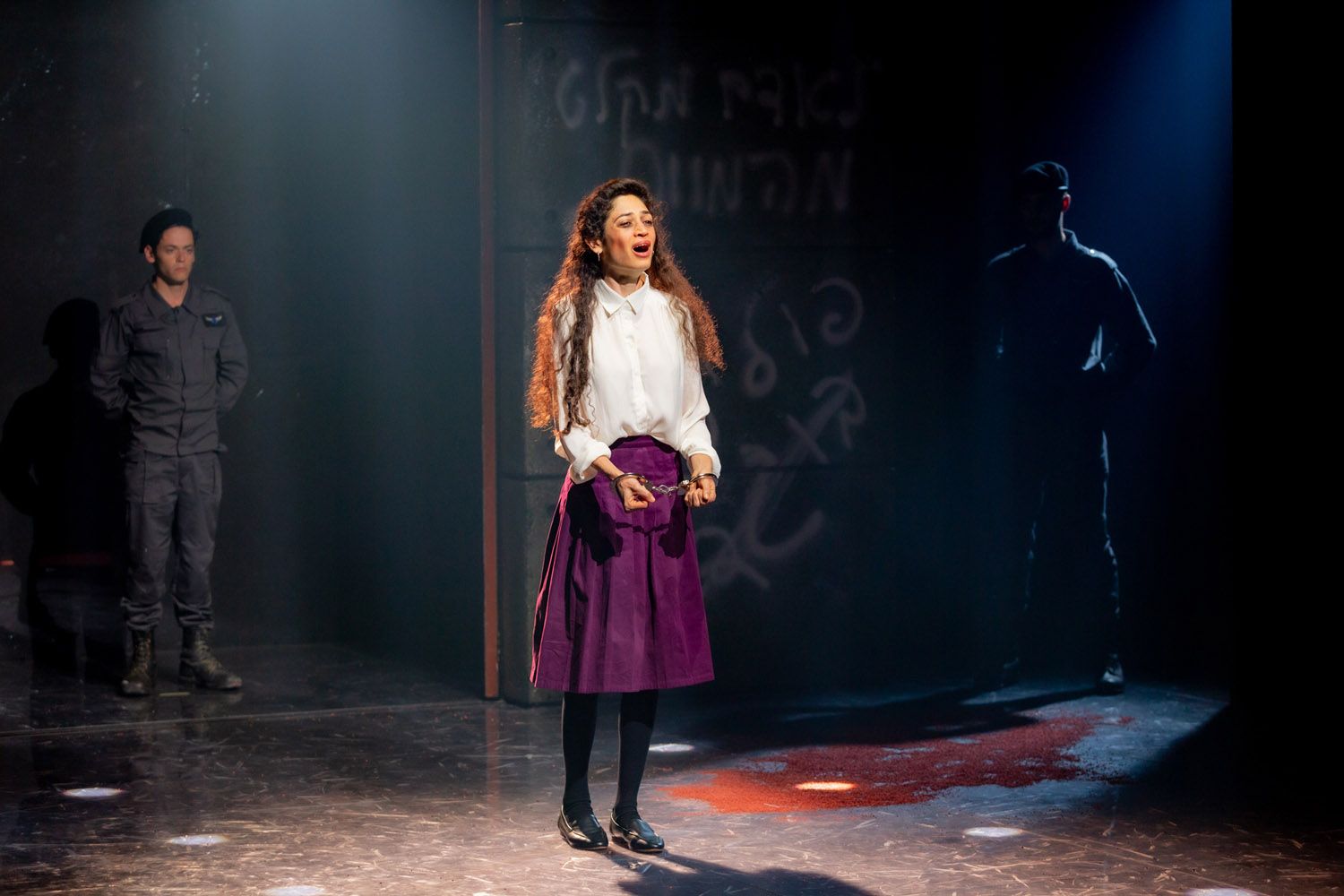
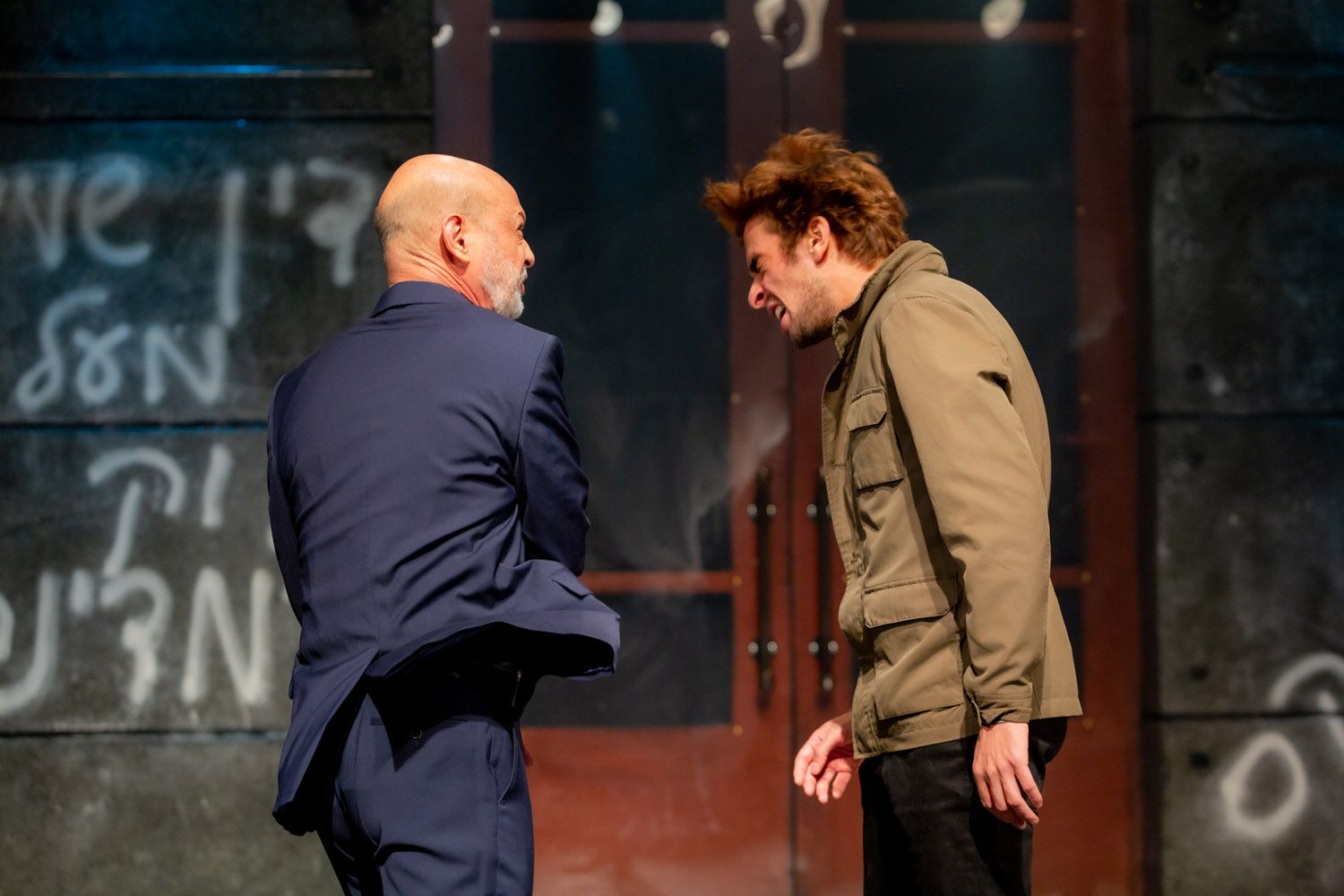
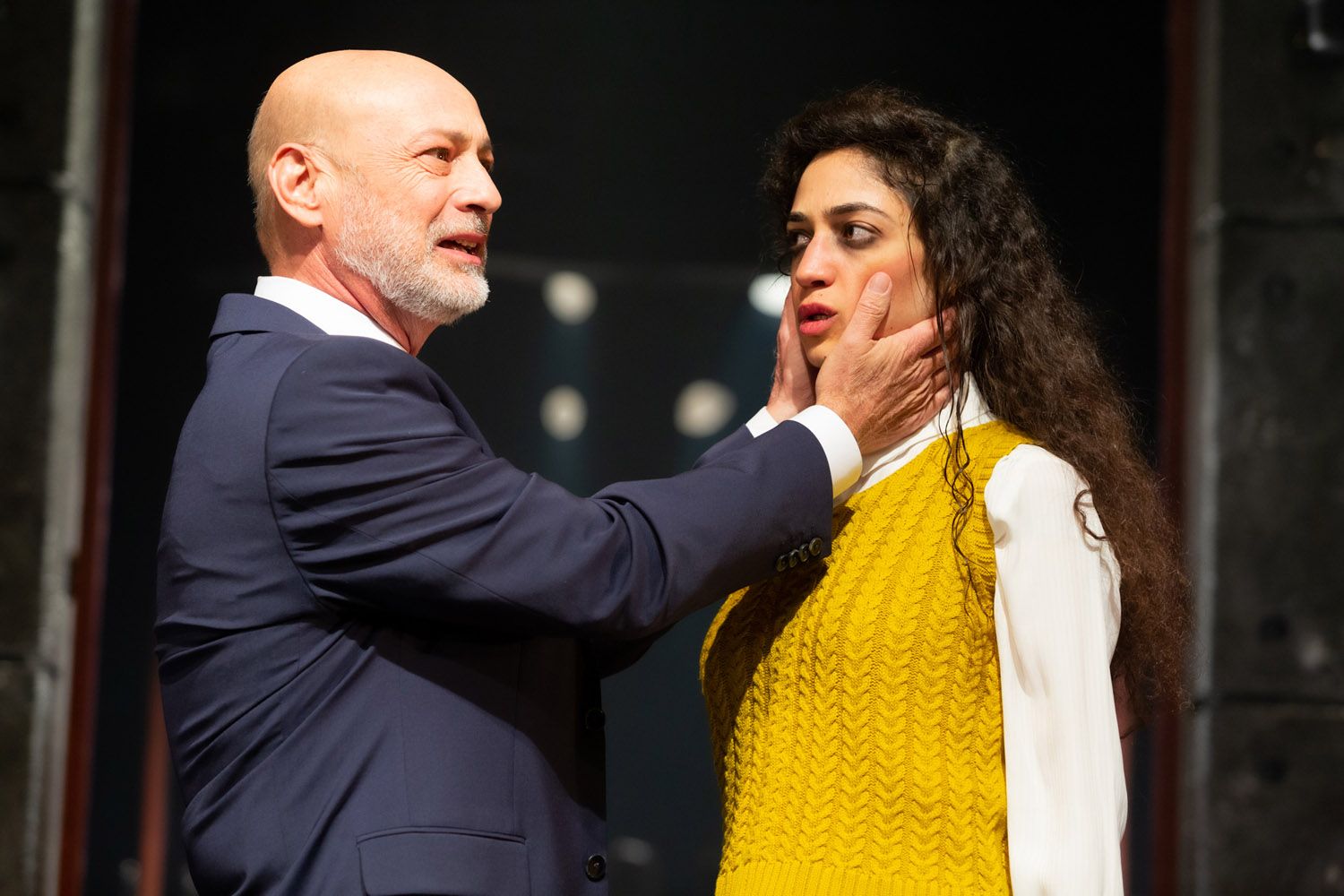
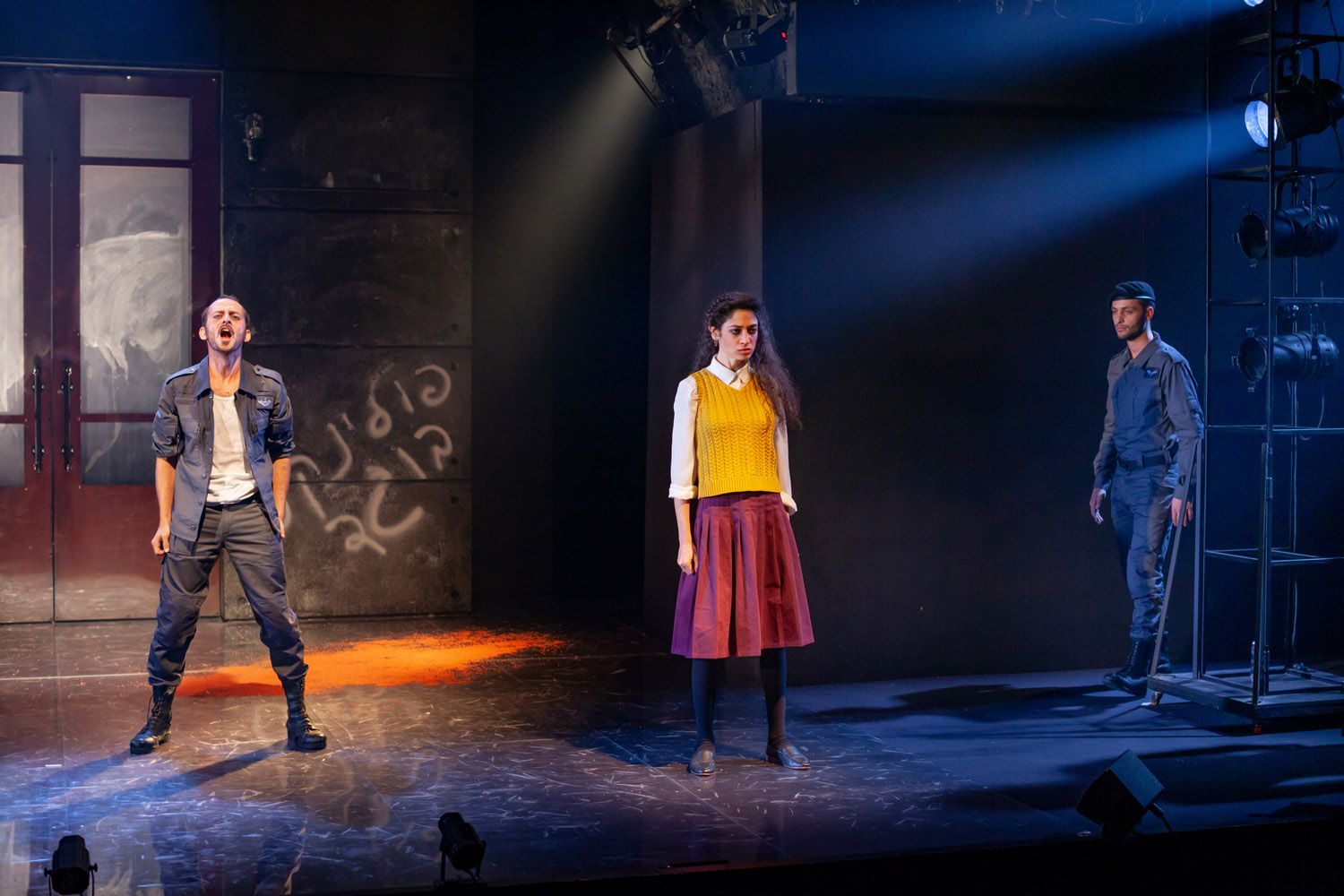
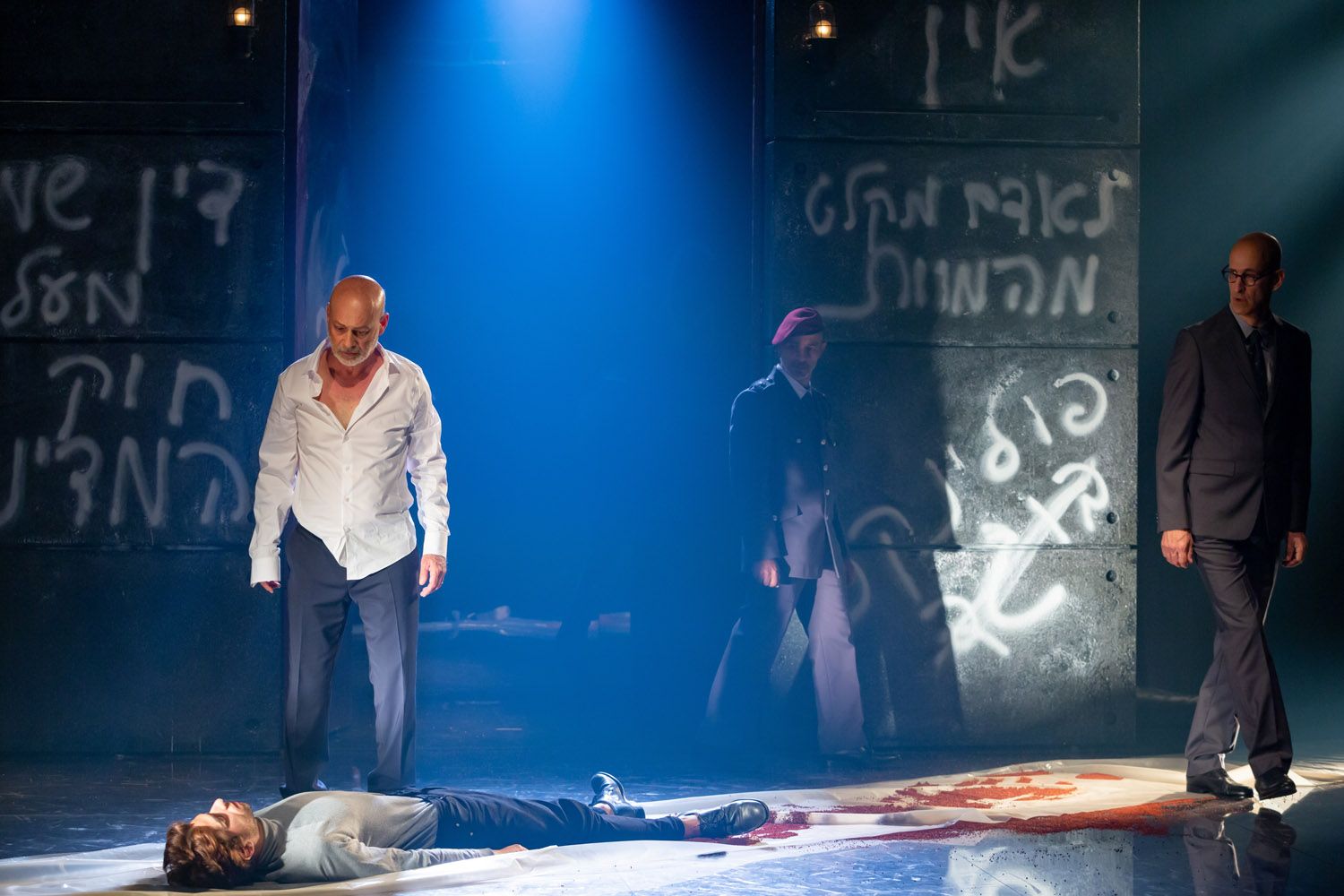
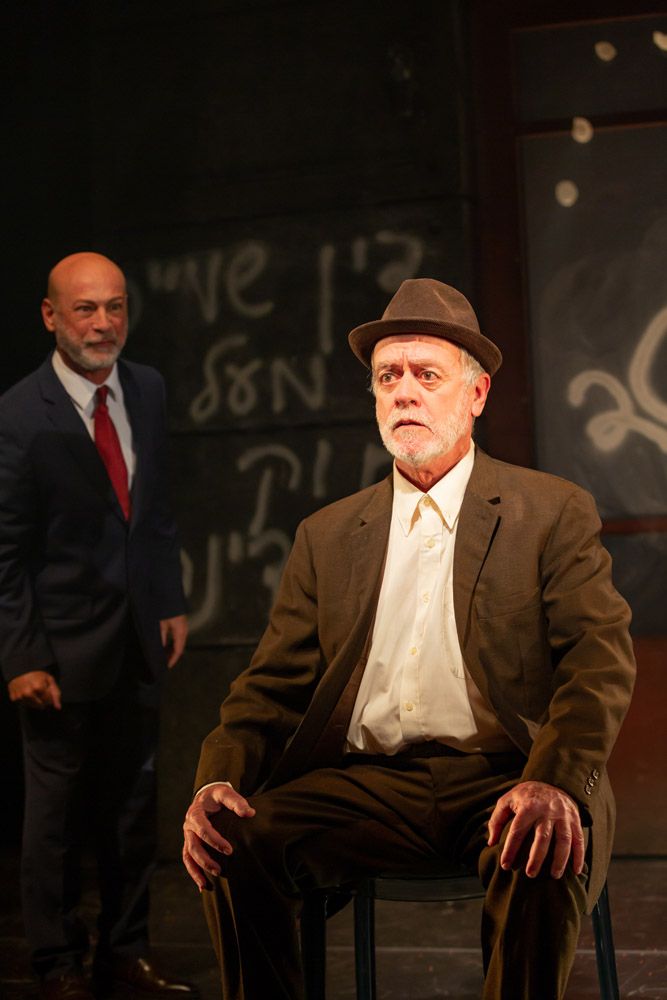
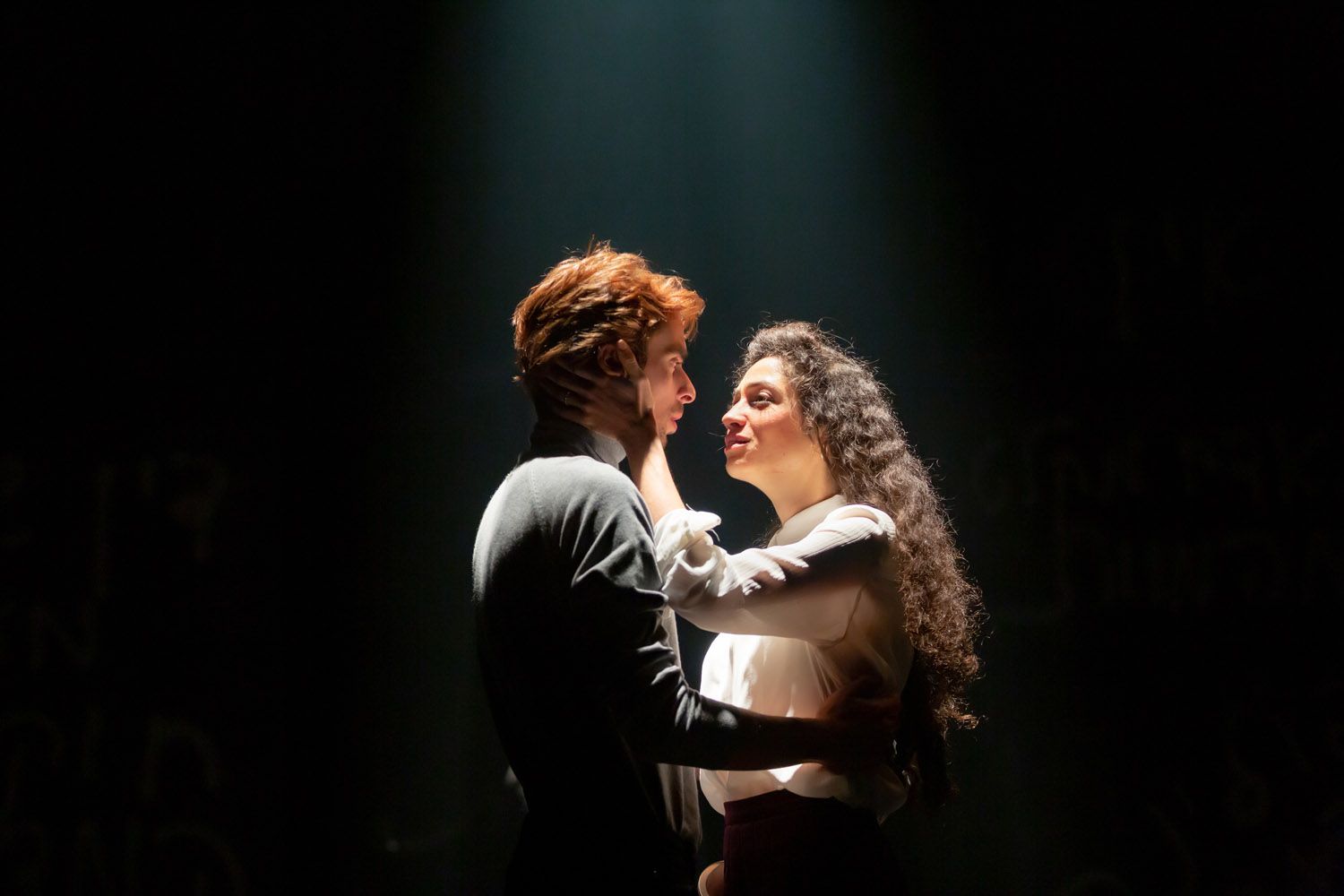
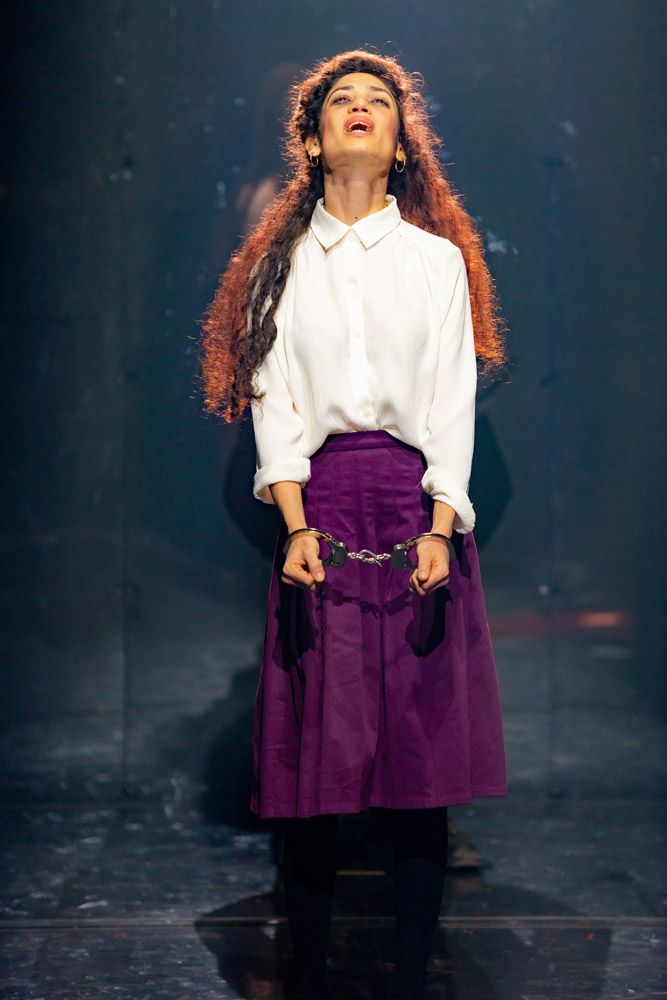
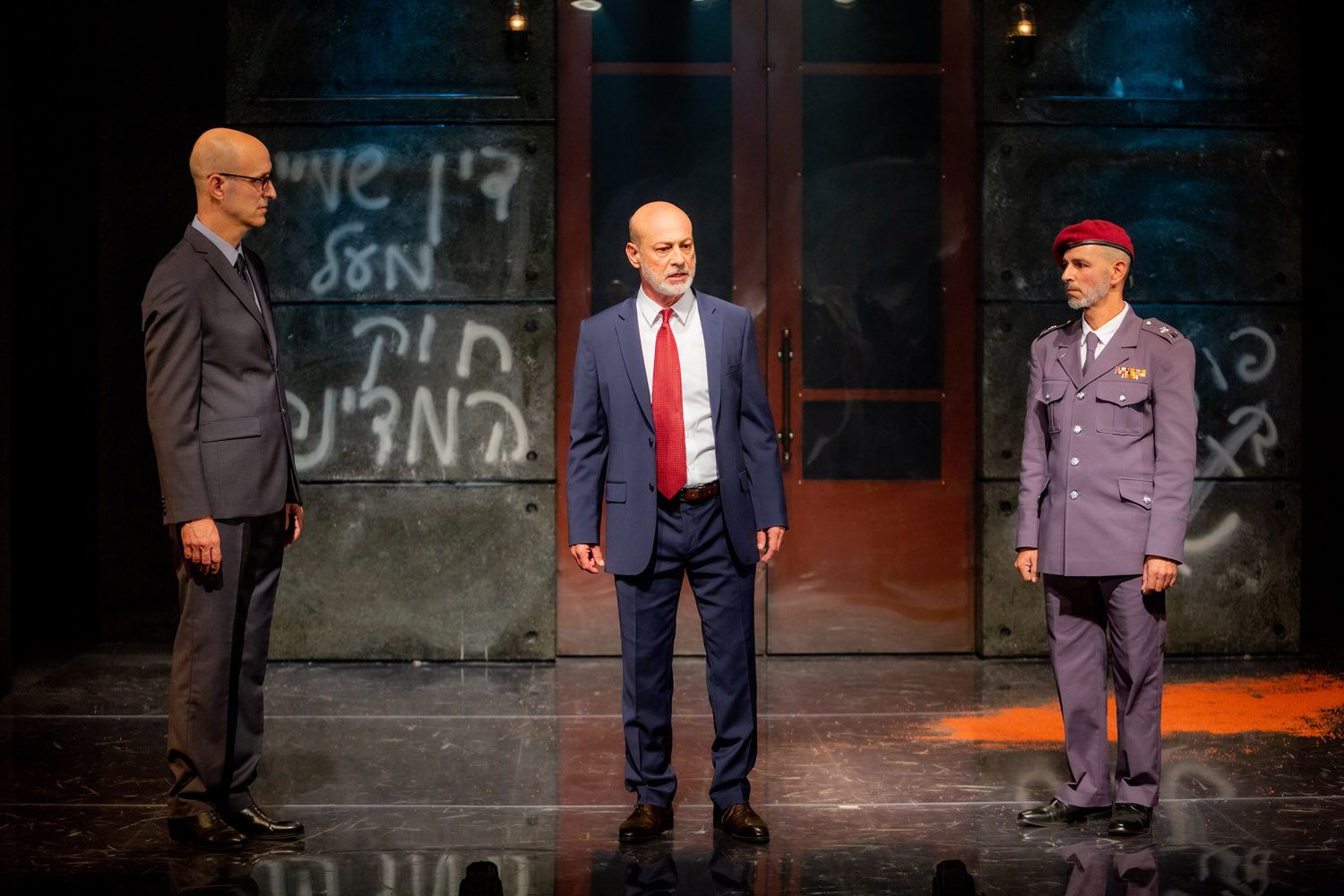
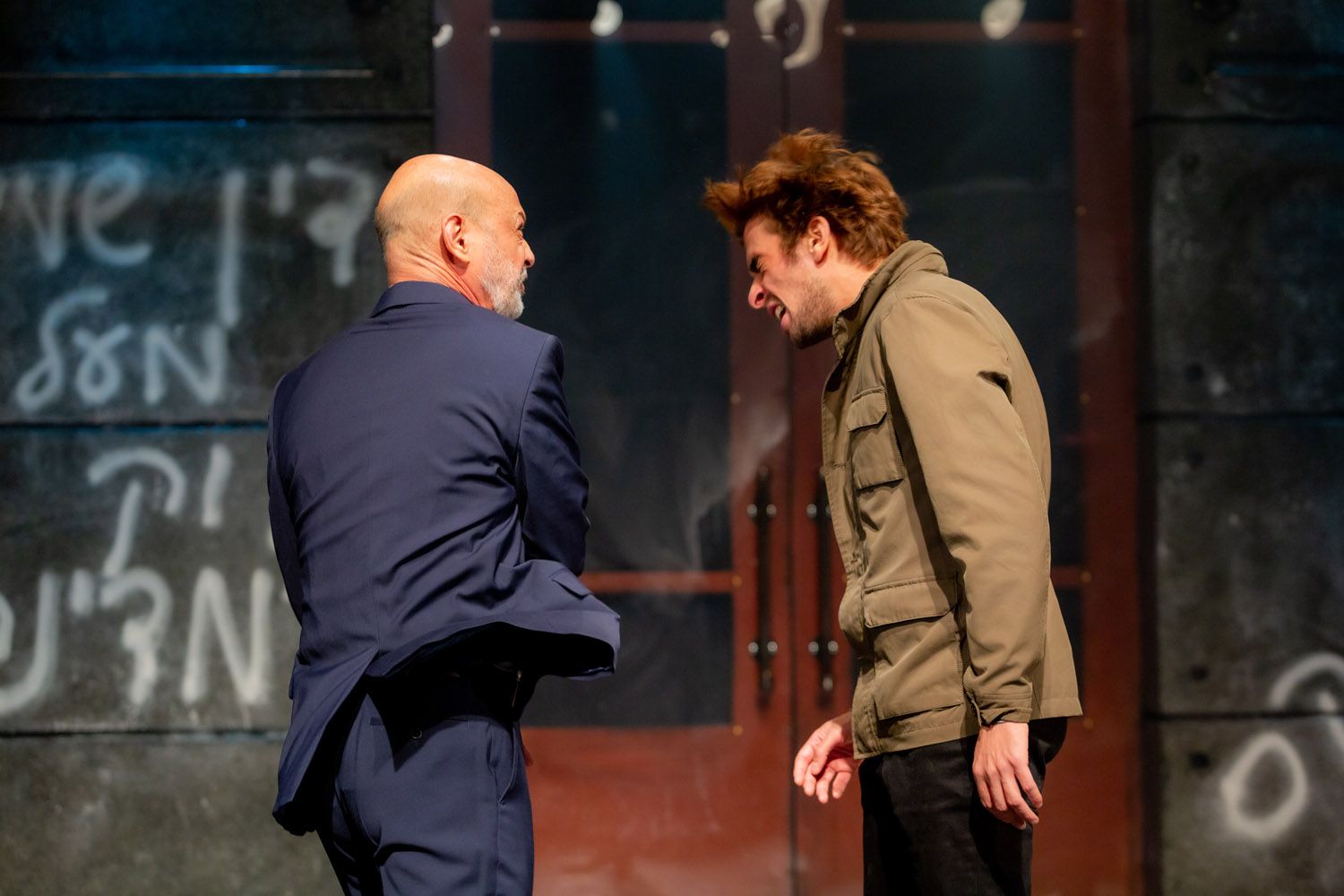
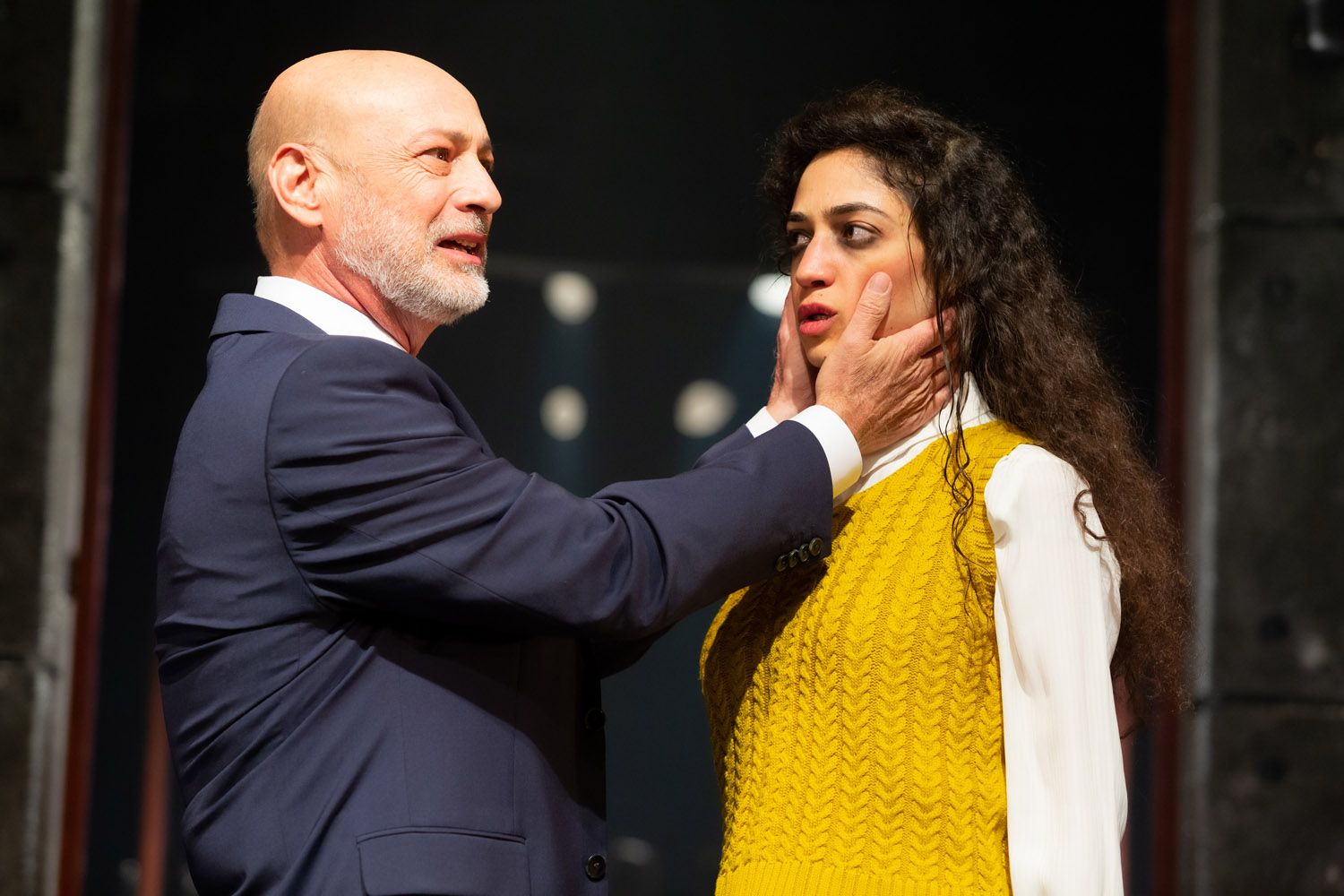
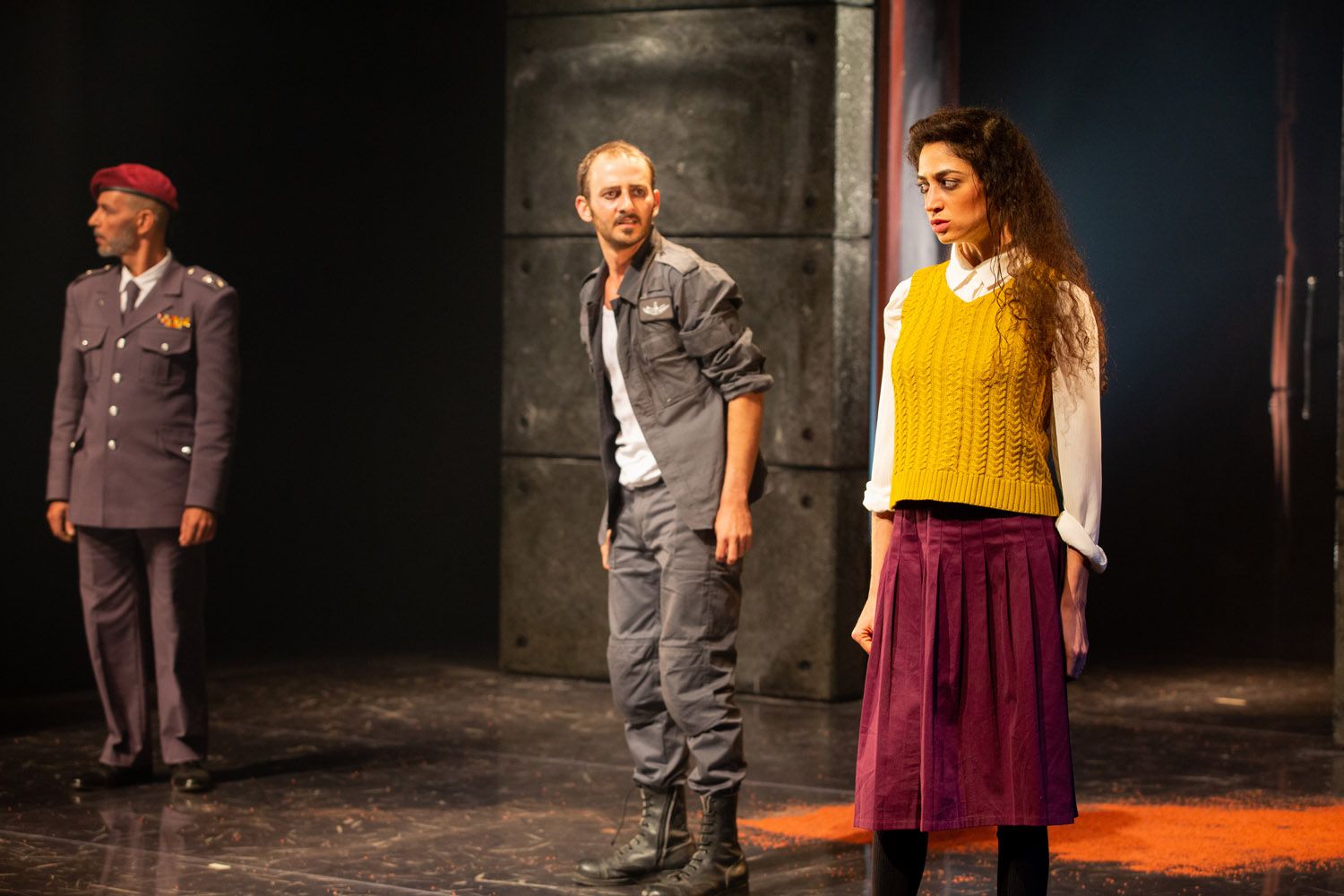
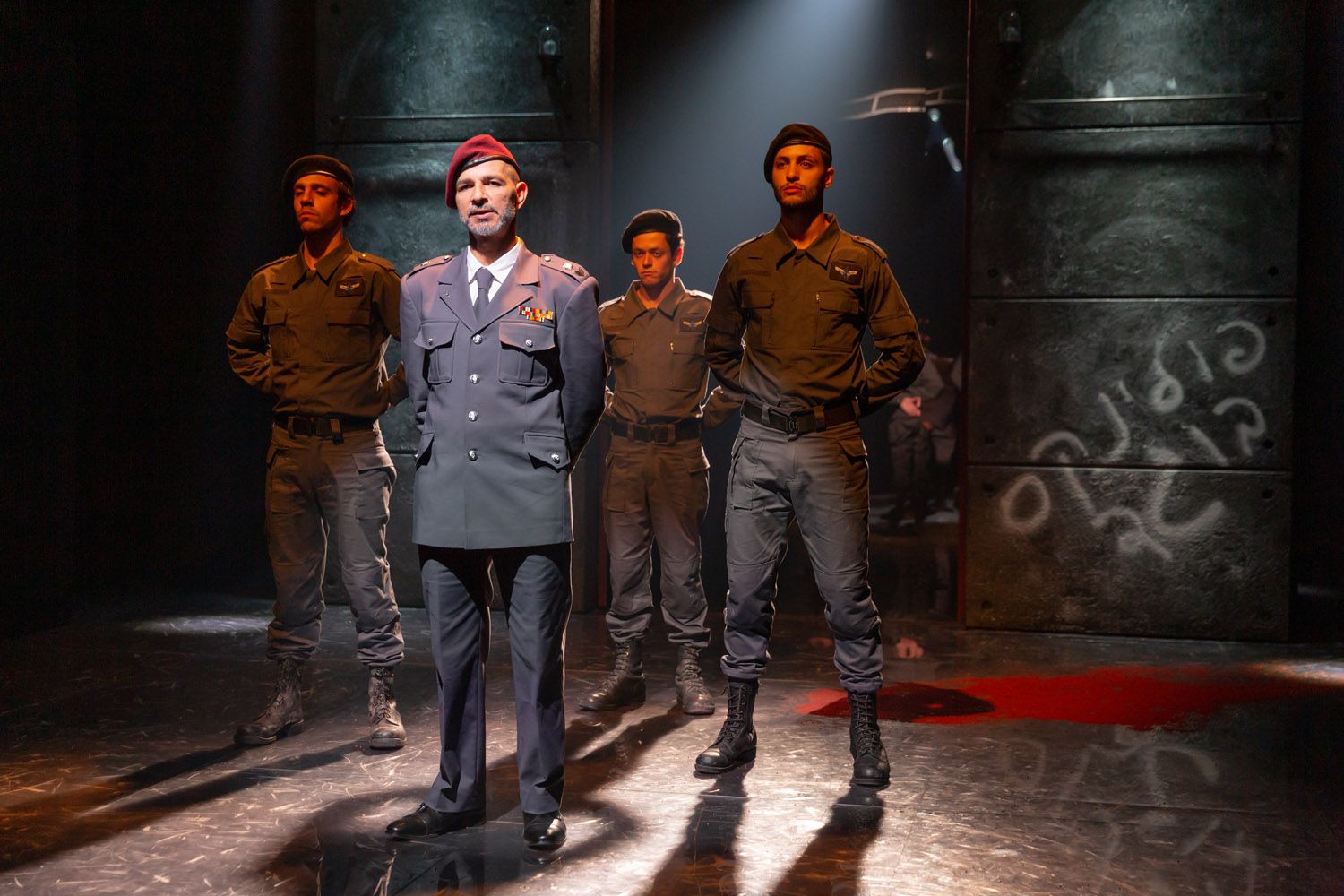
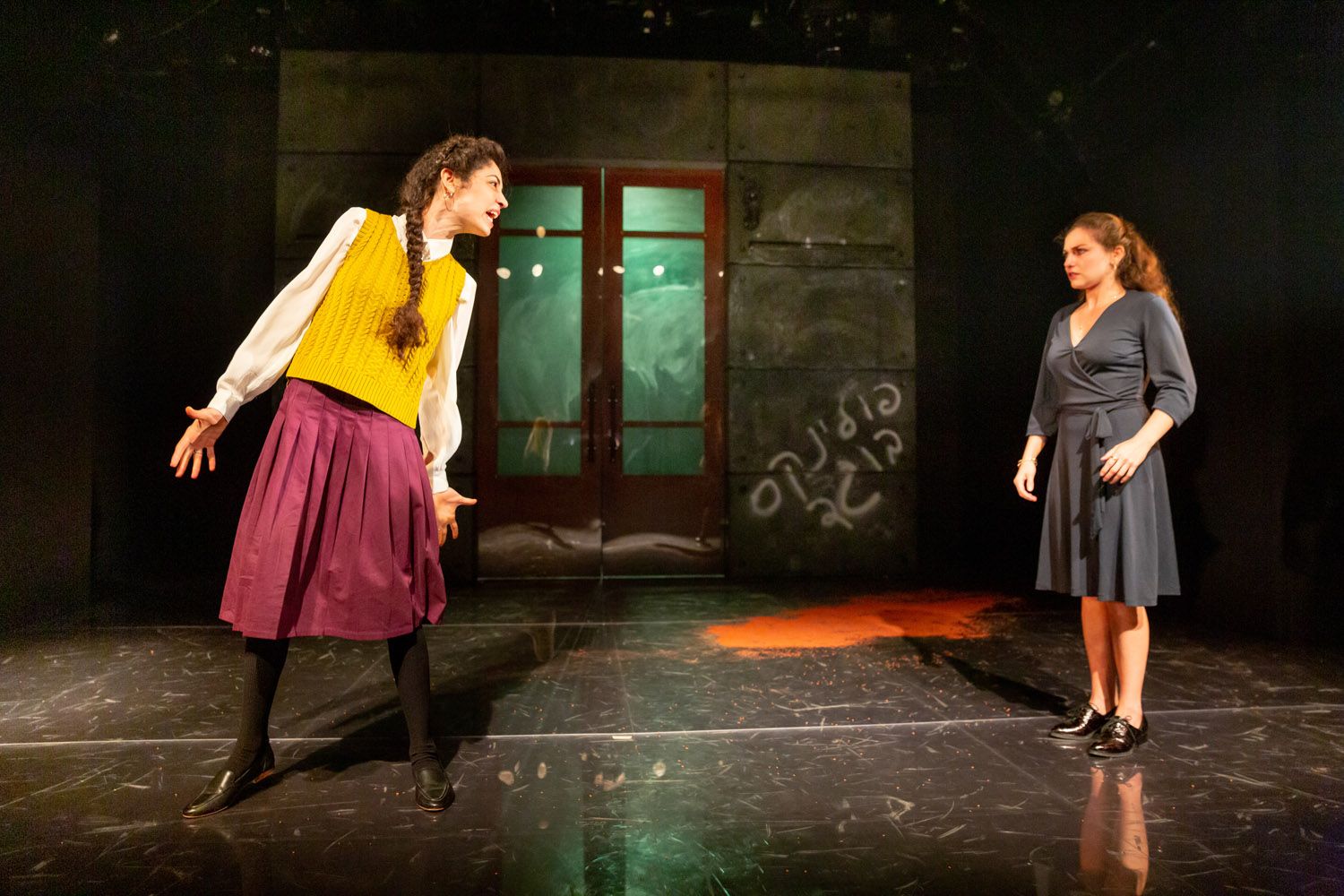
Περίληψη
Agamemnon on his return from Troy was murdered by his wife Clytemnestra and his cousin Aegisthus, Clytemnestra’s lover. His daughter Electra, fearing for the fate of her little brother Orestes, secretly handed him over to a faithful servant, who took him to the land of Krisa in Fokida, where Strofius was king.Eight years later, Orestes, at the instigation of the god Apollo, returns to Mycenae in order to punish his father’s murderers. To achieve this, he uses a trick: he sends the tutor to the palace in the guise of a foreigner, in order to announce the supposed death of Orestes, whose ashes would be brought by other emissaries of king Strofius. The news causes anguish in Electra, who who seeks the assistance of her sister Chrysothemis in killing of Aegisthus, but in vain. Orestes and Pylades appear on stage, as bearers of the ashes of the supposedly dead Orestes. Electra is initially unaware of the identity of the envoys, but then she recognizes her brother. They plan together the vindictive act and then Orestes carries out the murder of Clytemnestra and then Aegisthus.The history of the house of Atreides was used by all the tragedians, but the difference in the work of Sophocles is that matricide happens with the condescension of the gods and is totally vindicated.Σκηνοθετικό σημείωμα
Sophoclean language is remarkably contemporary, portraying the distortion of a country’s values and institutions and the creation of an ineffective and uncontrolled state. In the play, the fraudulent murder of king Agamemnon by Clytemnestra and Aegisthus and their act of usurpation leads to the loss of every notion of trust, empathy and justice. Undoubtedly, the fall of values and institutions is particularly contemporary and universal.Meritocracy -the selection and promotion of those who are objectively worthy and capable- is replaced by mediocracy, nepotism, bribery, violence, social agitation, lack of ideas and absence of social and personal improvements.All the ancient Greek tragedies share the same theme: the enforcement of order in a situation of disorder. Today, I understand and stand for all those Electras who revolve and fight for freedom and justice: Palestinians, Kurds, Cypriots, Syrians… I understand and stand for Electra, who is devoted to avenge her father’s unjust death and aims to achieve justice through hate.Sophocles sets man in the centre of the plot. His actions have an impact and a universal reaction when opposed to the harmony of world order. When a man -symbol of a small universe- usurps, exploits or sheds the blood of another man for power and dominance, then for Sophocles and for me who proposes this play, he agitates the correct mathematical equation of life, his relation to nature and other men in general.How ethical is it to demolish a country in order to exploit its wealth or take advantage of its geographical position? How ethical is it to ravage people who do not have the power to defend themselves and their homeland? How ethical is it to throw bombs at non-combatants, to invade and destroy countries with tanks and armies of young boys?When is a war right? For me, a war action is right only when is made by the weak side for defensive purposes or for the reinstatement of order, justice and balance. This is what happens in the case of Electra. Her inexplicable right for freedom transforms her revenge to an acceptable and absolutely necessary action.Through the language -in this simple translation- Electra by Sophocles finds her place in today’s society; being more contemporary than ever. The play cries for freedom and order in an era of disorder. No one is punished at the end of the play; neither the gods nor the Εrinyes interfere: the members of the audience become the only judges of the two siblings.The themes of slavery and freedom are also central. Electra lives enslaved in her own house, in her own homeland, unable to hope for something better. The murder of Aegisthus and her mother Clytemnestra is exclusively her own and absolutely conscious decision. The fulfillment of her desire will lead her to absolute freedom. It is not revenge, but an ethical action that brings catharsis and causes the return of values and institutions to Argos.Reflecting on our times, the continuous absence of freedom and the fall of institutions provoked by the violent desire for dominance, I believe that Electra by Sophocles exists in time and space: in the past, present and future.Neoklis NeokleousΒιογραφικό θεατρικού σχήματος
The Cyprus Satiriko Theatre was founded in October 1983 by the actor and stage director Vladimiros Kafkarides, who resigned from the Cyprus Theatre Organisation (THOC) to be able to produce theatrical plays within the space of the independent theatre. He encouraged other accomplished and young actors -with similar aspirations- to join him and together they formed the Independent Theatre Company. It was the first theatrical company of its kind to be later funded by the Cyprus Government.The company was first registered by the name “New Theatre”. The first two Cypriot plays of the company reflected Vladimiros’ love for local dramaturgy: the play Love Hero, written by the Cypriot folklore poet Pavlos Liassides, was staged for the Main Stage, while My beautiful Goldfinch, written by Kika Poulheridou, was presented at the Children’s Stage. Two months after the registration of the company, Vladimiros Kafkarides died from a heart attack (he was 52 years old). After his death, his close associates decided to continue his work, renaming the theatre company “Vladimiros Kafkarides New Theatre” in his honour, as the founder and pioneer of Cypriot Theatre.Vladimiros Kafkarides’ death shocked and dismayed the Cyprus public and especially the then President of the Republic of Cyprus Mr. Spyros Kyprianou. Mr. Kyprianou personally invited Vladimiros’ close associates and granted to the company the use of the Chanticlair Theatre, located at the centre of Nicosia. He also made arrangements so that the company could be supported by government funds. Vladimiros’ death thus became the reason behind government policy to fund the independent theatre.The renaming of the “New Theatre” to “Satiriko Theatre” and the establishment of the “Vladimiros Kafkarides Cultural Centre” took place at the same time, in 1988. The company was eventually forced to abandon the Chanticlair Theatre and it had to move into an old cinema (Cine Varnavides Brothers) in Strovolos, Nicosia. The building was transformed within a month into a stage theatre, with the help of the company’s employees and other actors and volunteers, who made it possible for the company to continue its performances. In 1989, Satiriko Theatre applied to the then president of the Republic, Mr. George Vassiliou, and was given government land to build the Vladimiros Kafkarides Cultural Centre. At the same time, a letter of support was also sent to the various Ministries by the President, asking for their help and support towards the realisation of this project.Satiriko Theatre functions with three Stages: the Central, the Second Stage and the Young Children’s Stage. The yearly show production cycle for all three Stages includes eight productions (4 at the Central Stage, 2 at the Young Children’s Stage and 2 at the Second Stage). There are 220 performances per year, which are attended by an audience of 70-80 thousand people coming from all over Cyprus. The subscribing member friends of Satiriko Theatre include more than 1000 families.